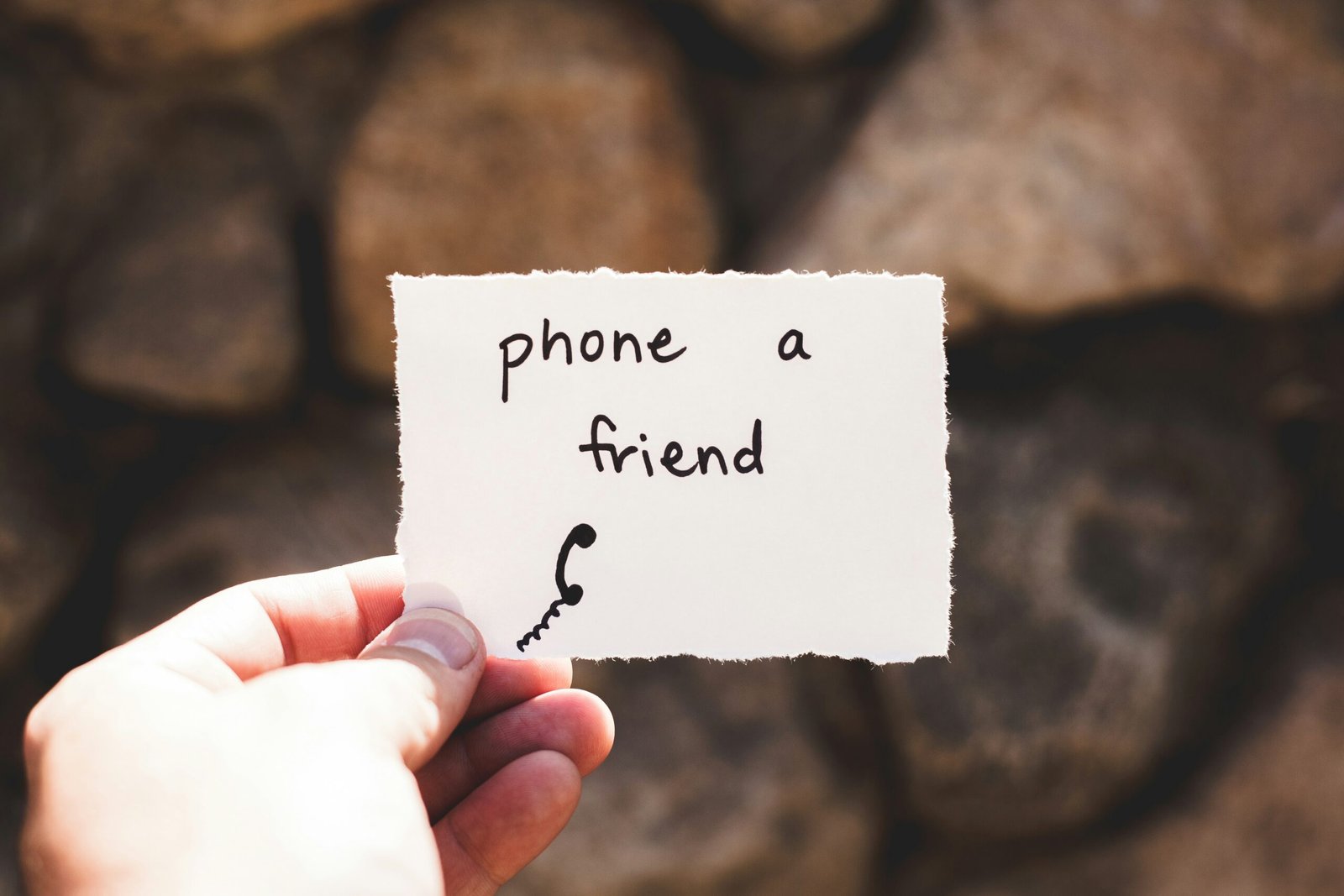Introduction to Couples Therapy
Couples therapy, often referred to as relationship counseling, has emerged as a significant resource for partners looking to enhance their connection and navigate the complexities of modern relationships. As societal norms evolve and couples face increasing challenges, the trend of seeking therapy has gained traction. More partners are recognizing the value of professional guidance to address relational issues, thereby fostering healthier dynamics. The core purpose of couples therapy is to provide a safe, impartial space where both partners can express their feelings, communicate effectively, and work collaboratively towards resolution.
Throughout the therapy process, both partners engage with a licensed therapist who specializes in relational dynamics. The roles of these individuals are pivotal; partners must be willing to share their perspectives and actively participate in discussions, while therapists facilitate dialogue, offer insights, and introduce strategies tailored to the couple’s unique situation. This collaborative approach emphasizes the importance of understanding each partner’s viewpoints and emotional needs, thereby paving the way for improved communication and eventual resolution of conflicts.
While couples therapy is undeniably beneficial, it is essential to recognize that it is not a one-size-fits-all solution. While many couples find effective resolutions to their challenges through therapy, others may discover that underlying issues—such as individual mental health concerns or deep-seated relational patterns—require additional forms of intervention. Thus, while the role of psychology in couples therapy is crucial, it is equally important to consider other factors influencing relationship dynamics. By acknowledging that couples therapy is one element in a broader systemic approach to relational well-being, partners can take informed steps towards fostering healthier and more resilient relationships.
The Psychological Foundations of Couples Therapy
At the core of couples therapy lies a series of psychological principles that guide therapists in addressing relational conflicts and promoting healthier dynamics. Central to these principles is attachment theory, which postulates that the bonds formed between individuals in early childhood influence their relationship behaviors in adulthood. In the context of couples therapy, therapists examine each partner’s attachment style—be it secure, anxious, or avoidant—to understand how these traits impact their interactions. Recognizing attachment styles enables therapists to help couples develop healthier patterns of emotional connectivity and communication.
Communication strategies are another crucial element utilized in couples therapy. Effective communication is foundational for any relationship; thus, therapists often employ specific techniques to facilitate open dialogue between partners. These techniques include active listening, where each partner is encouraged to express their thoughts without interruption, and “I” statements, which encourage individuals to express their feelings without placing blame. By fostering an environment where both partners feel heard and validated, couples can work towards resolving misunderstandings that may contribute to escalating conflicts.
Conflict resolution techniques are also an integral part of the psychological framework in couples therapy. Many couples experience challenges that stem from unresolved disputes; therefore, therapists often teach couples how to navigate conflicts constructively. This might involve identifying triggers that lead to disputes, negotiating solutions, or exploring underlying emotions that fuel disagreements. Using methods such as role-playing, therapists guide partners to understand each other’s perspectives better, ultimately promoting empathy and facilitating compromise.
Through the application of these psychological principles—attachment theory, communication strategies, and conflict resolution techniques—therapists are equipped to support couples in overcoming challenges and enhancing their relationship satisfaction. This structured approach significantly contributes to the efficacy of couples therapy, making it a valuable resource for partners seeking to improve their connection and understanding of one another.
Limitations of a Psychological Approach
While psychological approaches to couples therapy are widely recognized for their efficacy in facilitating communication and resolving conflicts, there are inherent limitations when relying solely on these methods. One prominent shortcoming is the tendency to overlook significant external stressors, such as financial difficulties or societal pressures, which can substantially impact a couple’s relationship dynamics. These stressors may exacerbate existing emotional challenges or create new ones, but a purely psychological framework may not adequately address them.
Individual differences among partners also pose a challenge within traditional psychological modalities. Each partner brings a unique set of life experiences, backgrounds, and coping mechanisms into the relationship. Whereas psychology aims to identify and modify behavior and thought patterns, it might fail to consider how varying personality traits and emotional responses affect interactions. The reliance on generalized psychological theories runs the risk of ignoring these individual subtleties, potentially leading to solutions that are not universally applicable or effective.
Furthermore, the cultural context surrounding a couple can significantly shape their relationship. Cultural norms, values, and expectations can dictate how partners communicate and resolve conflicts. A psychological approach that does not take cultural differences into consideration might inadvertently position certain behaviors as problematic without recognizing their cultural significance. This oversight can lead to misunderstandings and jeopardize the therapeutic process.
Thus, while psychological insights form a valuable part of couples therapy, they cannot be seen as the definitive solution. A comprehensive approach must also incorporate external factors, individual differences, and cultural contexts to adequately address the complexities of relational challenges. By acknowledging these limitations, therapists can better tailor interventions to meet the diverse needs of couples seeking to improve their relationships.
The Role of Emotional Intelligence in Relationships
Emotional intelligence (EQ) plays a pivotal role in fostering and maintaining healthy relationships. Defined as the ability to recognize, understand, and manage one’s own emotions while simultaneously recognizing and influencing the emotions of others, EQ is a critical component for relational success. While traditional psychology focuses on cognitive approaches and techniques, it often overlooks the practical applications of emotional intelligence in day-to-day interactions between partners.
One of the most significant aspects of EQ is emotional awareness. Couples who possess high emotional awareness can identify their feelings and the feelings of their partner in real time, allowing for more open communication. This capacity to articulate emotions effectively can prevent misunderstandings that often escalate into conflict. For example, when one partner feels neglected, being able to express this discomfort rather than resorting to silence or anger fosters an environment where both individuals can address concerns before they grow into bigger issues.
Moreover, emotional regulation is essential for healthy interactions. Couples with a high degree of emotional intelligence tend to manage their emotions constructively. They can control impulses and reactivity, leading to less emotional volatility during disagreements. This self-regulation not only helps maintain a sense of calm but also models healthy coping strategies for conflict resolution, enabling both partners to work through challenges without resorting to destructive patterns.
Empathy, another critical component of emotional intelligence, allows partners to understand and share each other’s feelings. When individuals actively listen and demonstrate genuine concern for their partner’s emotions, it cultivates a deeper connection and reinforces a relational bond. This understanding often empowers couples to tackle issues collaboratively rather than as adversaries.
While traditional couples therapy may equip partners with various psychological tools, it is essential to recognize that success in relationships often hinges on the emotional competencies of the individuals involved. High emotional intelligence can enhance relational dynamics, allowing couples to navigate their issues more effectively.
Cultural and Societal Influences on Relationships
Understanding the impact of cultural and societal influences on relationships is crucial when addressing couple dynamics in therapy. Relationships are not formed in a vacuum; they reflect and are shaped by the cultural and societal contexts in which individuals live. Different cultures possess unique values, norms, and expectations that guide interpersonal dynamics, often complicating traditional psychological approaches. For instance, some cultures prioritize collectivism over individualism, leading to different understandings of personal identity within a relationship. This can affect how partners perceive conflict resolution, emotional expression, and communication styles.
Furthermore, societal factors such as socioeconomic status, ethnicity, and gender roles can also dictate relationship norms and expectations. For example, societal pressures can influence individuals to adhere to certain traditional roles within a partnership, which can create stress and misunderstandings when those roles are challenged. Therapists who lack cultural competence may struggle to navigate these complexities effectively. Consequently, it is essential for therapists to be aware of their clients’ cultural backgrounds, as well as the broader societal influences that frame their experiences and expectations within their relationship.
Cultural competence in therapy not only helps in understanding clients better but also fosters an environment where individuals feel safe to express their concerns. It allows therapists to tailor therapeutic approaches that resonate with the clients’ cultural values. Failing to consider these elements may lead to misinterpretations and inadequate solutions, leaving clients feeling misunderstood or unsupported. Thus, integrating cultural awareness into relationship therapy is not merely beneficial; it is imperative for effective and meaningful therapeutic outcomes.
The Importance of Individual Differences
In the realm of couples therapy, one of the critical factors that significantly influences the effectiveness of treatment is the recognition of individual differences. Each partner in a relationship carries a unique background, personality, and history that shapes their perceptions, emotional responses, and communication styles. These individual characteristics play a crucial role in how each partner engages within the relationship and how they respond to therapeutic interventions.
Applying a ‘one-size-fits-all’ approach to couples therapy can lead to oversimplification or misinterpretation of issues that are deeply rooted in individual experiences. For instance, a partner who has experienced trauma may have specific triggers that affect their emotional responses, while another with a different upbringing may prioritize communication or conflict resolution differently. When therapists neglect these differences, they risk implementing strategies that may not resonate with both partners, leading to frustration and a potential breakdown of trust in the therapy process.
Moreover, the nuances of individual beliefs, values, and coping mechanisms must be respected to create a holistic therapeutic environment. Tailored strategies that acknowledge these personal differences can foster understanding and empathy between partners, allowing them to work collaboratively toward shared goals. Effective therapy should not only focus on the couple as a unit but also provide space for each individual to express their thoughts, feelings, and experiences. This balanced approach is crucial in fostering meaningful change and healthy communication.
Ultimately, recognizing the importance of individual differences in couples therapy can lead to more productive sessions, enhanced relationship satisfaction, and a deeper emotional connection between partners. In a diverse world, it is essential that therapeutic practices evolve to meet the unique needs of each individual, ensuring that the journey of healing and growth within a relationship honors the complexity of human experience.
Alternative Approaches to Healing Relationships
In the pursuit of restoring harmony in troubled relationships, alternative approaches beyond conventional couples therapy can offer significant benefits. These methods often address relational issues from varied perspectives, allowing for a more comprehensive understanding of the dynamics at play. One such approach is mindfulness, which emphasizes present-moment awareness and acceptance. By cultivating mindfulness, partners can improve communication, reduce anxiety related to conflicts, and develop a deeper emotional connection. Engaging in mindfulness exercises together allows couples to create a safe space where they can express feelings without judgment.
Experiential therapy represents another compelling alternative. This approach includes methods such as art therapy and psychodrama, which encourage individuals to express their emotions through creativity and role-playing. Such techniques can unveil underlying issues that traditional talking therapies might overlook. By physically embodying relationship scenarios, partners can gain insights into their interactions and transform their emotional responses. Additionally, experiential therapy often fosters empathy between partners as they explore each other’s experiences in a safe environment.
Community-based support systems are also instrumental in healing relationships. These systems, which may involve support groups or workshops, provide couples with shared experiences and encouragement from others facing similar challenges. Engaging in a community can alleviate feelings of isolation and foster a sense of belonging. Furthermore, the insights gained from observing others’ experiences can offer new techniques for resolving conflicts and strengthening bonds.
These alternative methods highlight the fact that healing relationships can extend beyond traditional psychological frameworks. By exploring mindfulness practices, experiential therapies, and community support, couples may find innovative solutions for their challenges. Each of these approaches offers unique benefits that can rejuvenate relationships by addressing issues in holistic and enriching ways, ultimately promoting healthier connections.
Real-Life Case Studies: When Couples Therapy Falls Short
In various instances, couples therapy has not yielded the anticipated outcomes, indicating that mere psychological interventions may not always suffice. For example, consider the case of a couple, Jane and Mark, married for over a decade. They sought therapy due to recurring arguments about finances. Despite the therapist’s efforts to mediate their discussions and apply conflict-resolution strategies, Jane’s underlying feelings of betrayal stemming from an earlier infidelity went unaddressed. The therapy focused primarily on communication techniques but overlooked the emotional trauma that Jane had yet to process. Consequently, their arguments intensified rather than diminished, leading to an eventual separation.
Another illustrative example involves Sarah and Tom, who approached therapy to resolve issues of intimacy. During their sessions, the therapist concentrated on physical aspects of their relationship, suggesting various techniques to rekindle their sexual connection. However, the couple’s emotional disconnection was the core issue, driven by unresolved personal traumas that surfaced earlier in their lives. The therapeutic approach taken did not explore these psychological backgrounds, resulting in an inability to resolve their intimacy issues. Ultimately, the therapy reinforced their divisions rather than promoting healing.
A further case highlights the situation of Lisa and Brian, where external stressors, such as financial burden and family obligations, exacerbated their relationship strains. Their therapist predominantly focused on interpersonal communication skills without acknowledging the impact of these external factors. This oversight led to a lack of tangible progress, as the couple felt overwhelmed by their life circumstances, making the coping strategies introduced in therapy seem superficial and disconnected from their reality.
These real-life examples underscore the limitations of couples therapy, illustrating how a narrow focus on psychological techniques can miss essential elements of a relationship’s dynamics. Without addressing deeper emotional or contextual issues, couples may find themselves trapped in unproductive cycles, leading to frustration and despair. Attention to the complete relational landscape is vital for the effectiveness of therapeutic interventions.
Conclusion
As we have explored throughout this article, couples therapy can be a beneficial pathway for many partners facing challenges in their relationships. However, it is essential to recognize that psychology, while important, is not the only lens through which relationship dynamics should be understood. A holistic approach that encompasses various dimensions of human experience offers a more comprehensive solution to relationship healing.
The integration of emotional intelligence into therapy sessions can enhance communication and empathy between partners. By fostering an environment where both individuals feel heard and appreciated, emotional intelligence can bridge the gaps that often lead to misunderstandings. Furthermore, cultural considerations should not be overlooked; partners may have different backgrounds that influence their expectations and behaviors in a relationship. Acknowledging these cultural nuances allows therapists to tailor their approaches more effectively, ensuring that the strategies employed resonate with both individuals.
A focus on individual differences is also crucial. Each partner brings unique experiences and perspectives that shape their interactions. By recognizing and valuing these differences, couples can work toward a more inclusive understanding of one another, ultimately leading to stronger bonds. Additionally, exploring alternative methods such as mindfulness practices, communication skills workshops, or even art therapy can provide partners with diverse tools to navigate their challenges together.
In summary, while psychology forms an essential component of couples therapy, it is imperative to adopt a holistic view that integrates emotional intelligence, cultural awareness, and individual perspectives. Doing so can create healthier, more sustainable relationships that endure the test of time. A multifaceted approach not only addresses immediate concerns but also sets the foundation for long-term relational success and satisfaction.


